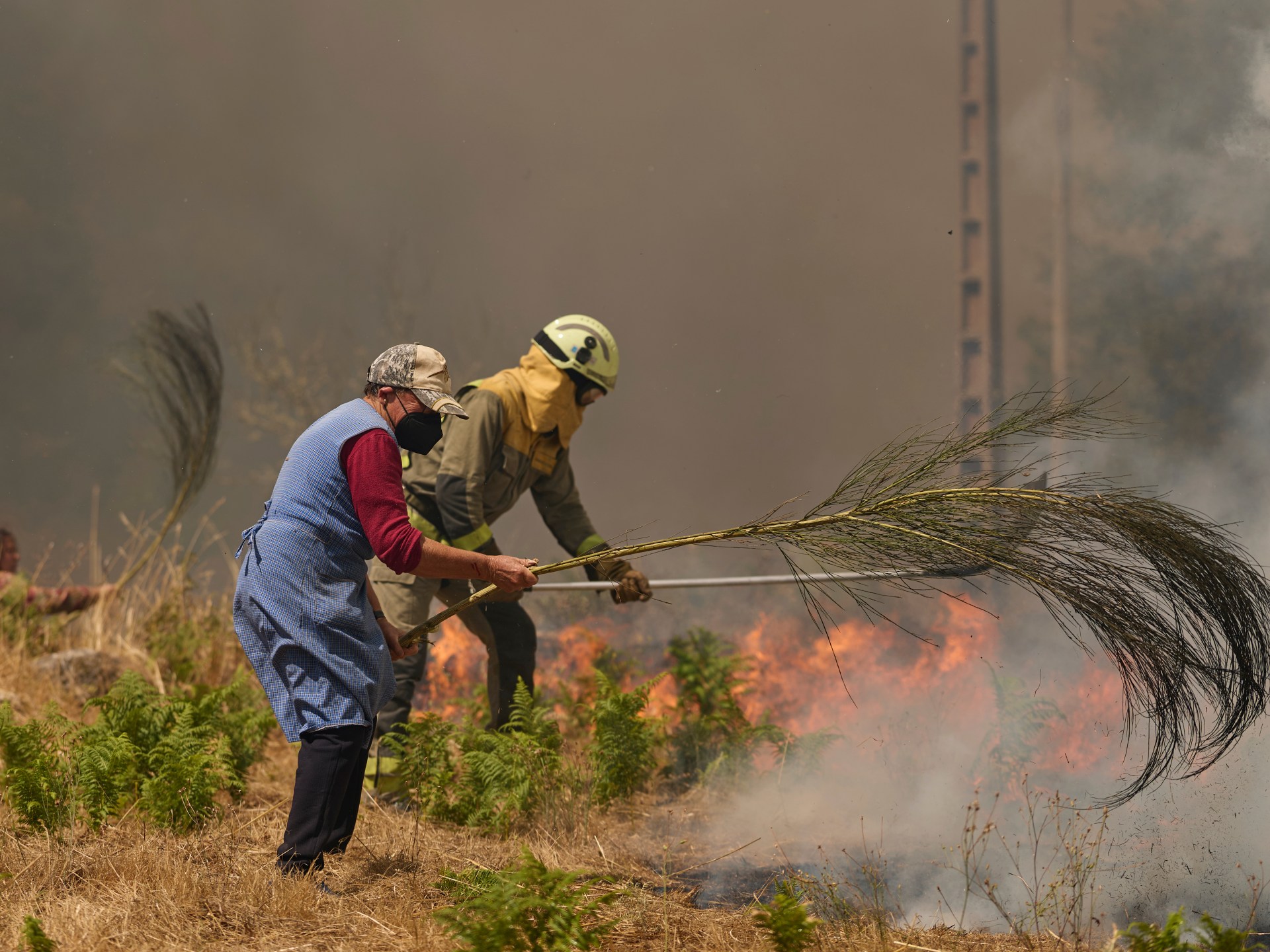As a result of a severe 16-day heatwave and anticipated rainfall, Spain is tackling several significant wildfires in one of its most destructive fire seasons in decades, which has been fueled by climate change.
Fires tearing through parched woodland, which were particularly severe in northwestern Spain, where a “very high or extreme” fire risk was still reported, particularly in the Galicia region, were being fought out on Tuesday with the help of thousands of firefighters aided by soldiers and water-bombing aircraft.
Extremadura, Galicia, and Castile and Leon have been restricted from access to roads and the railroads have been suspended.
According to the Spanish Ministry of Interior, German firefighting units made an announcement in northern Spain on Tuesday to help with the blazes. The ministry reported that more than 20 vehicles were deployed to combat a burning area in the Extremadura region near Portugal in Jarilla.
Prime Minister Pedro Sanchez, who visited the Extremadura fires, stated that the government would declare many of the affected areas as “emergency zones,” which in turn means they would be eligible for reconstruction aid.
He added that he would propose a strategy for changing climate emergency policies into permanent state policies the following month, blaming the causes of the fires.
He claimed that the climate emergency is getting worse and faster each year, particularly in the Iberian Peninsula.
Opposition leaders claim that his proposal aims to divert attention away from his country’s subpar fire management.
One of the longest heatwaves in the last five decades has ended, according to AEMET, which now anticipates a rise in humidity and temperatures. However, it stated that Extremadura and other southern Spain would continue to suffer from bad weather.
According to the European Union’s European Forest Fire Information System (EFFIS), four people have died in Spain this year and have burned more than 382, 000 hectares (944, 000 acres) or about 3,820 square kilometers (1, 475 square miles) in total.
Human activity has frequently started fires. According to the Spanish Civil Guard, police have detained 23 people for alleged arson and are looking into 89 more.
The Czech Republic, Finland, France, Germany, the Netherlands, Slovakia, and the Spanish army have all sent hundreds of firefighters, vehicles, and aircraft.
More than 3,700 firefighters were battling blazes along Portugal’s Iberian Peninsula, including four major ones in the north and center.
According to EFFIS, there have been 235, 000 hectares or 907 square miles of wildfires there, which is nearly five times the average for this time period from 2006 to 2024. There are two dead, respectively.
According to Al Jazeera’s Sonia Gallego, who is reporting from Coutada, Portugal, “the devastation] from the wildfires is enormous, it looks like apocalyptic landscape.”
According to Gallego, “the danger of reigniting is of great concern for the firefighters, as well as putting out the flames that have out of control,” said Gallego.
She noted that getting to “a source of water close enough to collect water and extinguish those flames” is another difficulty that firefighters face.
One of Southern Europe’s worst wildfire seasons in 20 years is occurring across the country.
Source: Aljazeera

Leave a Reply